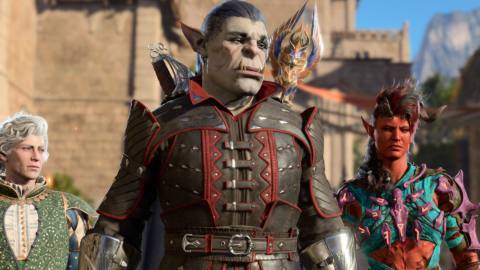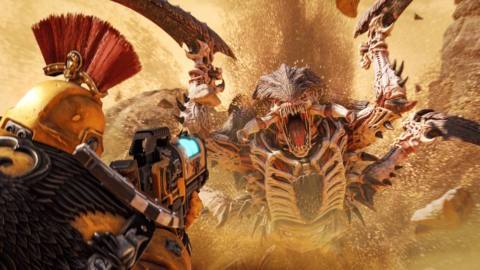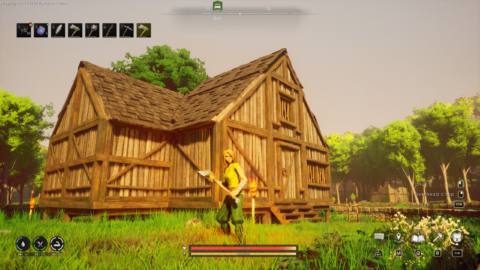There's a charming nonsense to Into the Emberlands' economy. It starts out pretty straightforward: buy an axe, chop down a tree, collect the wood. But then what do you do with that wood? You find a troll and give it to him, of course, in exchange for a crystal shard. Then you can take that to a giant chicken who can make your lantern bigger, so you can travel far enough to reach the petal fields and buy some shears to harvest flowers to give to a petalologist in exchange for… sorry, have I lost you?
Let me take it back a few steps. In structure, Emberlands is an odd sort of survival game. Playing from a top-down perspective, you guide a charming little traveller on jaunts out from their home village into the wilderness by clicking where you want them to go, harvesting resources and gathering lost villagers along the way. But the further they walk, the more the light of their lantern diminishes—if it runs out before they get home, they're dead, and you lose all your items and upgrades.
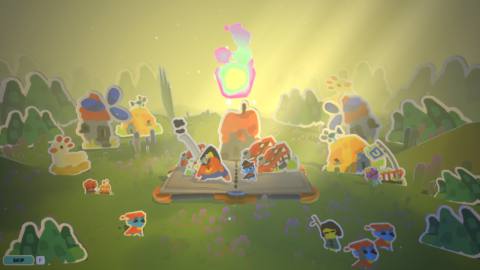
With no enemies or hazards, this is at first a very calm pursuit. Short, safe trips into the colourful forest allow you to quickly blaze through the early objectives and slowly upgrade your village with new facilities and shops. Into the Emberlands is very much a “cosy game”, and for a while I thought it was just going for a completely sedate experience.
But danger and difficulty does sneak up on you. As you progress, the demand for further afield resources increases, forcing you to make longer and longer trips. While outside of town, a fog of war prevents you from seeing any further than your immediate surroundings, and there's no map to follow, making it easy to lose track of your way back.
The same trees, rocks, and other features that you smash for materials can also block your path, and each gathering tool only has a certain number of uses. Choose the wrong route back through the forest without sufficient axes in your fairly small inventory, and it's easy to hit dead ends, forcing you to waste lantern light doubling back on yourself.
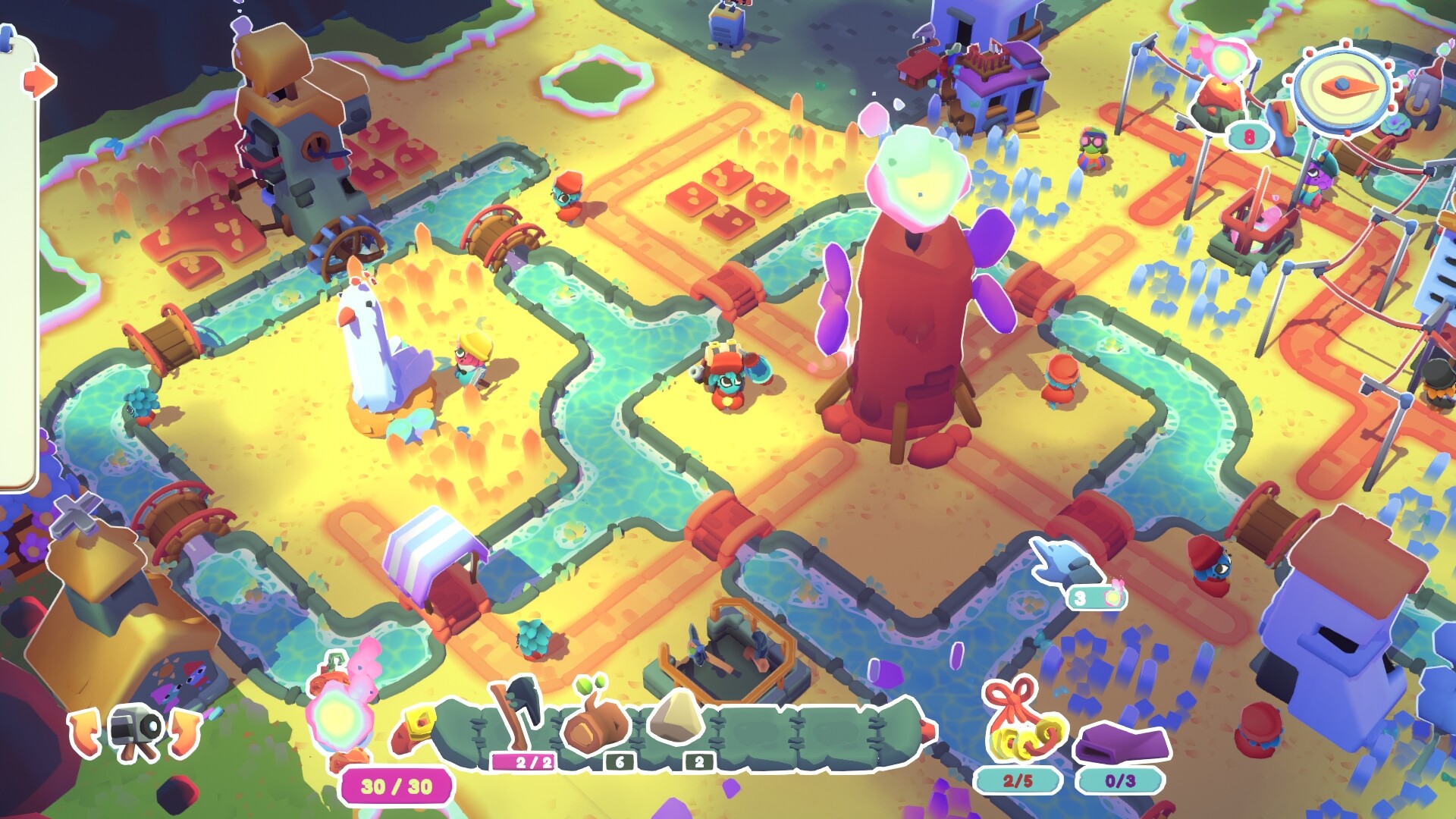
It becomes almost puzzle-like, reminiscent of a board game. Tools must be spent strategically, to carve yourself the most direct and efficient path possible. Onto that are layered all sorts of odd things you can find out in the world, which form that strange economy and ensure you're always making important (and surreal) choices about the best way onwards.
Should you burn your wood at an abandoned furnace to gain some precious lantern light, or save it for a troll to get yourself closer to a permanent lantern upgrade? If you use your last axe to get to this lost villager, will the spare light you can grab from their campfire be enough to make up for now being forced to take a large detour? Or are you sure enough of your path home that you can gamble on trading away some light to a disembodied hand in exchange for some gold coins?
It's never stressful or scary, but it does get surprisingly tense as the game forces you to push your luck more and more, and it's very good at evoking that slightly queasy feeling of realising you've strayed a little too far off the beaten path and aren't quite sure of your way back to town. Like Dragon's Dogma, it makes getting home safe its own little dopamine hit.
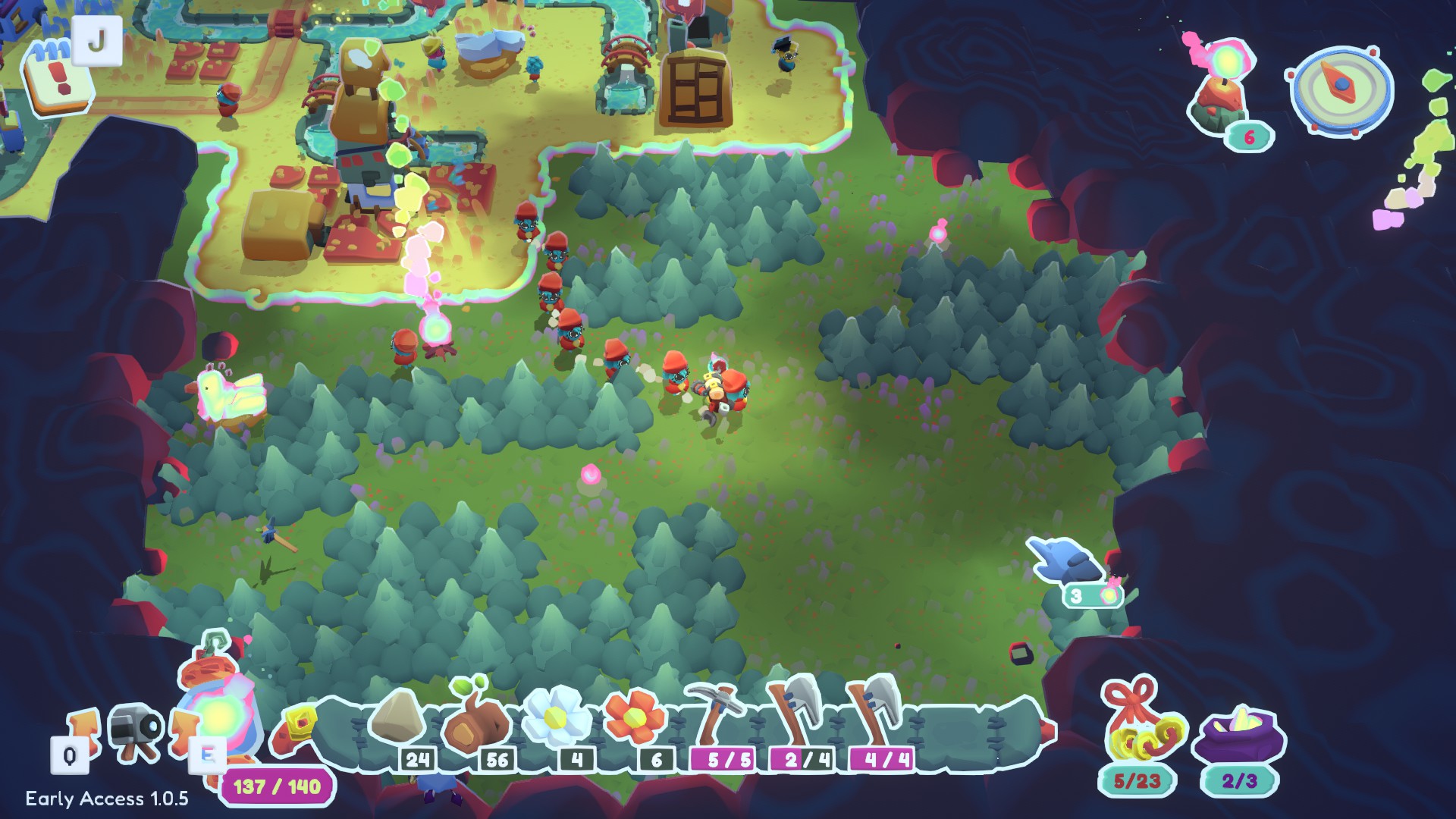
It's slow and can get repetitive, but that does feel part of the point—it reminds me of Dorfromantik, another game that's surprisingly strategic but also designed to zone out to, merrily pottering away as you soak in the vibes. Charming visual touches—like the clucking chickens stretching up their necks to look around, or the way lost villagers follow you like a conga line of adorable clones—give its little world a welcoming and dream-like personality. Stick on a podcast and just soak it in.
I don't see myself losing hundreds of hours to Into the Emberlands, but at just $6/£5 it's a charming way to wile away a few hours. It's freshly launched in Early Access, so you can also expect more depth and content to be implemented over a planned 6-9 months before the 1.0 release. Maybe the next update could add something more normal and grounded—how about a raccoon that trades socks for Pepsi Max?

